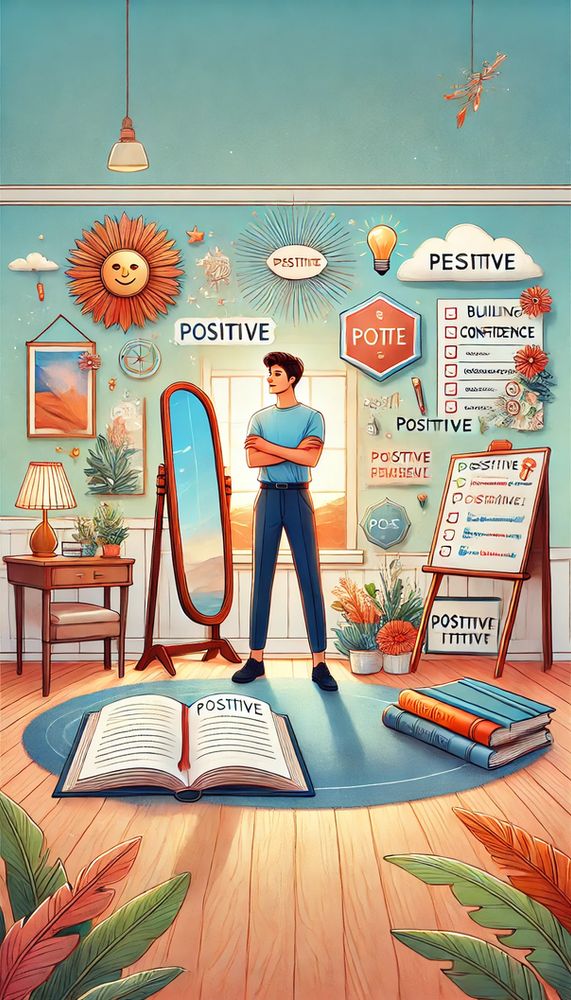
Confidence isn’t just a personality trait—it’s a reflection of mental health. When your mind is strong, balanced, and resilient, confidence becomes a natural byproduct. In a world that constantly challenges our self-worth, building robust mental health has become more crucial than ever. Mental health fuels confidence by helping us face fears, silence self-doubt, embrace failure, and take bold actions.
In this blog, we will explore a complete guide on how to build your mental health to boost confidence. From mindset shifts to daily habits, psychological tools, and lifestyle changes, everything is connected. Let’s break it all down.
1. Understand the Link Between Mental Health and Confidence
Before building anything, you must understand it.
Mental health involves emotional, psychological, and social well-being. It affects how we think, feel, and act. Confidence, on the other hand, is the belief in your abilities and self-worth. Poor mental health often leads to anxiety, self-doubt, fear of judgment, and negative self-talk—all of which destroy confidence. When your mind is healthy, you become emotionally stable, focused, and secure, which helps you act with assurance.
Signs Your Mental Health Might Be Affecting Confidence:
Constant self-criticism Social withdrawal or fear of speaking up Anxiety over small decisions Perfectionism and procrastination Fear of failure
2. Master Your Inner Dialogue
The way you talk to yourself matters.
Self-talk is one of the most powerful influencers on your confidence. Negative internal dialogue like “I’m not good enough” or “I always fail” programs your mind to believe it. To build mental health and boost confidence, you must rewire this conversation.
Strategies:
Affirmations: Practice daily affirmations like “I am capable,” “I believe in myself,” “I am enough.” Catch and Correct: When you catch yourself thinking negatively, stop and reframe it. Self-Compassion: Treat yourself like a close friend when you make mistakes.
Example: Instead of “I messed up that presentation,” say “It wasn’t perfect, but I learned and I’ll improve next time.”
3. Build Emotional Resilience
Life doesn’t always go your way—and that’s okay.
Resilience is your mind’s immune system. It’s what allows you to bounce back from setbacks without letting them define your self-worth. Confident people aren’t free from failure—they’ve just trained themselves to cope with it positively.
How to Develop Resilience:
Embrace challenges as growth opportunities. Learn from mistakes instead of fearing them. Develop a problem-solving mindset. Build a support system of uplifting people.
Resilience training, like journaling about lessons learned from difficulties or seeking therapy, is a long-term investment in both mental health and confidence.
4. Practice Self-Acceptance and Authenticity
Confidence doesn’t mean being perfect—it means being comfortable with who you are.
The root of low self-esteem often lies in trying to meet others’ expectations, seeking approval, or comparing yourself to unrealistic standards. Accepting your flaws, quirks, and unique traits makes you mentally stronger and more self-assured.
Action Steps:
Make a list of things you love about yourself (skills, values, talents). Celebrate small wins and progress, not perfection. Let go of toxic comparisons—especially on social media. Speak your truth even when it’s uncomfortable.
Being authentic builds inner peace, and with it, true confidence.
5. Maintain a Healthy Mind-Body Connection
Mental health is deeply influenced by physical habits.
Your brain needs proper nutrition, rest, and activity to function optimally. An imbalanced body leads to mood swings, brain fog, anxiety, and low energy—killing confidence.
Tips to Strengthen the Mind-Body Connection:
Exercise regularly – Physical activity releases endorphins and boosts mood. Get enough sleep – Sleep deprivation can worsen anxiety and impair focus. Eat a balanced diet – Fuel your brain with Omega-3s, B vitamins, and hydration. Practice relaxation techniques – Deep breathing, meditation, or yoga reduces stress.
A healthy body supports a strong mind—and a strong mind supports bold actions.
6. Set Boundaries and Eliminate Negativity
Your environment affects your mental health and self-esteem.
Toxic relationships, energy-draining commitments, or constant exposure to criticism can wear down your mental strength and confidence. Learning to set boundaries is a form of self-respect and emotional protection.
How to Set Healthy Boundaries:
Learn to say “No” without guilt. Limit time with negative or critical people. Prioritize activities and people that energize you. Unfollow accounts that make you feel less than enough.
By protecting your mental space, you give yourself the freedom to grow and express yourself confidently.
7. Strengthen Your Social Connections
Humans are wired for connection—and your relationships affect how you see yourself.
Isolation can increase self-doubt and depression, while healthy connections build emotional resilience and confidence. Positive feedback, encouragement, and being seen for who you are all improve self-worth.
What You Can Do:
Spend time with people who uplift you. Talk about your struggles with trusted friends or mentors. Join support groups, clubs, or online communities. Offer support to others—it builds empathy and purpose.
Mental health thrives in a safe, supportive environment—and so does confidence.
8. Develop a Growth Mindset
Believing you can grow changes everything.
A growth mindset, coined by psychologist Carol Dweck, is the belief that abilities and intelligence can be developed with effort. This mindset makes you mentally strong and confident because you stop fearing failure and start seeing everything as a learning opportunity.
How to Cultivate a Growth Mindset:
Replace “I can’t” with “I can learn.” View criticism as feedback, not judgment. Praise effort and progress, not just results. Reflect on how far you’ve come, not how far you have to go.
A growth mindset leads to self-belief, resilience, and unstoppable confidence.
9. Create a Confidence-Boosting Routine
Confidence doesn’t just happen—it’s a daily practice.
Design a daily routine that nourishes your mental health and trains your mind to be more confident. Simple habits done consistently have a compound effect.
Sample Confidence Routine:
Morning: Gratitude journaling + affirmations Afternoon: 10-minute mindfulness or breathwork break Evening: Reflect on 1 win of the day Weekly: Face 1 small fear or challenge
The goal is to repeatedly tell your mind, “I’m safe, I’m capable, I’m growing.”
10. Seek Help When Needed
Strong people ask for help.
Sometimes, mental health struggles require professional guidance. There’s no shame in therapy or counseling. In fact, getting help when needed is a powerful act of self-love—and one of the most courageous things you can do to build both mental strength and self-confidence.
Signs You Might Benefit from Professional Support:
Persistent anxiety or depression Feeling stuck or overwhelmed Past trauma affecting your present Difficulty with relationships or boundaries
Therapists, coaches, or support groups can offer tools, insights, and healing that transform your inner world—and with it, your confidence.
Conclusion
Confidence isn’t built in a day. It’s cultivated slowly, through deliberate care of your mental health. Every positive thought, every healthy habit, every act of courage is a brick in the foundation of self-belief.
To boost confidence, you must start by investing in your mind—by strengthening your mental health through mindset shifts, lifestyle changes, emotional regulation, and daily rituals.
Remember, you are not broken. You are becoming. Each small step you take to support your mind is a giant leap toward a more confident, courageous, and fulfilled you.
Call to Action:
Start today. Pick one strategy from this blog and apply it in your daily life. Whether it’s journaling, affirmations, setting boundaries, or reaching out for support, your journey to a more confident version of yourself begins now.
Because when you build your mental health, you don’t just boost your confidence—you build a life where you show up fully, fearlessly, and freely as you.

👍👍👍